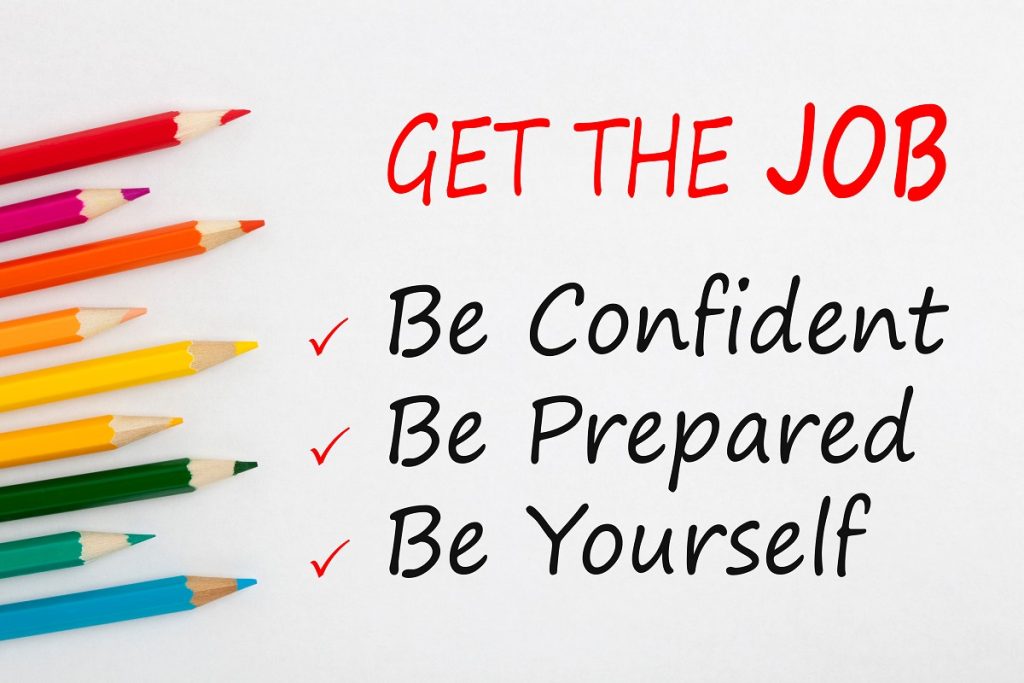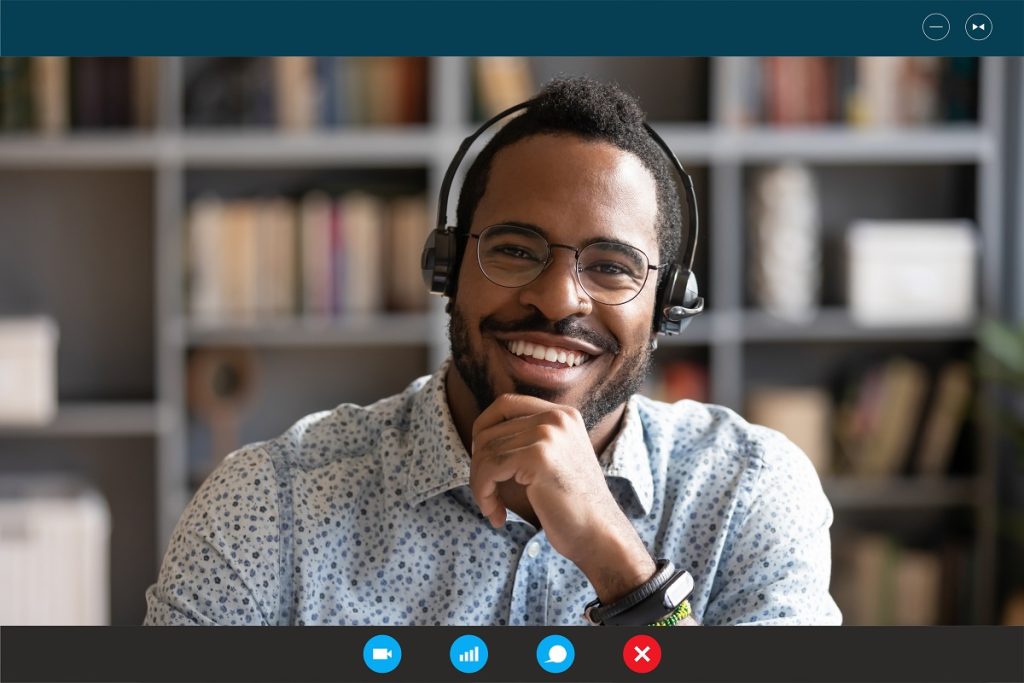At a remote job interview, the interviewer will likely ask about your background, experiences, and why you seek a job from home. Many examples of common questions are available online so that you can prepare yourself thoroughly for the interview.
Online job interviews have become increasingly popular as more companies offer telecommuting positions. While the interview format may differ, the remote job interview questions are essentially the same. In fact, remote job interviews may even require more thorough questioning to ensure the candidate is the right fit for the job.
Some questions will relate to your fitness for the job, while others will stress how you function in a remote atmosphere.
This article answers some common questions the company representative might ask in a remote job interview and how to prepare for them.
Table of Contents
How Do I Prepare For A Remote Interview?
To prepare for a remote interview, read the job posting carefully, and research the company and the role you’re applying for. Practice answering common interview questions out loud, and ensure you have a quiet and distraction-free space for the interview.
Test your technology in advance to ensure your internet connection and video conferencing software is working correctly. Finally, dress professionally and be prepared to show your enthusiasm and personality through the camera lens.

What Are The Most Common Interview Questions?
An interviewer will often start off the process by asking you to tell them about yourself. As with any job, prepare an “elevator speech” overview of your qualifications for the job you are interviewing for. Your answer should include who you are, what you do, and why you are a great fit for the job. This introduction should take about 30 seconds and should be conversational.
Five of the most common interview questions are:
The five most common questions you will likely be asked in a remote job interview are:
- “What inspired you to apply for this remote position?”
- “How do you manage your time and prioritize tasks when working remotely?”
- “What experience do you have working with remote teams or in a remote environment?”
- ” How do you communicate and collaborate with remote team members?”
- “What challenges have you faced while working remotely, and how did you overcome them?”
These questions assess your motivation for the position, ability to manage your workday independently, familiarity with remote work environments, communication and collaboration skills, and problem-solving abilities.
Preparing thoughtful and relevant responses to these questions helps you demonstrate your qualifications for the remote job and increase your chances of landing the position.

What Questions Should You Ask At A Remote Interview?
Here are some questions you can ask at a remote interview:
- “What does a typical day look like for someone in this position?” This question gives you a better understanding of the day-to-day responsibilities of the job.
- “How has the company adapted to remote work?” This question helps you understand the company’s approach to remote work and if they have the necessary infrastructure to support remote employees.
- “What are some of the biggest challenges someone in this role might face?” This question provides insight into the potential challenges of the job and if you have the skills and experience to overcome them.
- “What opportunities exist for professional development and growth within the company?” This question shows that you’re interested in long-term career opportunities with the company.
- “What is the next step in the hiring process?” This question gives you an idea of what to expect regarding timelines and follow-up communication.
How Do You Answer Remote Work Interview Questions?
To answer remote work interview questions effectively, follow these tips:
- Listen carefully to the question and take a moment to gather your thoughts before responding.
- Provide specific examples to back up your answers, such as a project you worked on in a remote setting or when you overcame a challenge while working remotely.
- Highlight your skills and experience relevant to the remote work environment, such as strong time-management and communication skills.
- Show your enthusiasm for remote work and your ability to work independently and be self-motivated.
- Be honest and transparent in your answers, but also show that you’re adaptable and can overcome any challenges remote work may present.
How Can You Impress In A Remote Interview?
To impress a remote interviewer, follow these tips:
- Be prepared and knowledgeable about the company and the position you’re applying for.
- Dress professionally and ensure your background and lighting are appropriate for a video interview.
- Show enthusiasm for the company and the opportunity to work remotely.
- Highlight your relevant skills and experience, and provide specific examples to support your claims.
- Demonstrate that you have a strong work ethic, are self-motivated, and have a track record of success in remote work environments.
How Can I Make Sure My Remote Interview Is Successful?
To make sure your remote interview is successful and does not raise red flags, follow these tips:
- Test your technology in advance to ensure your internet connection and video conferencing software is working properly.
- Choose a quiet and distraction-free space for the interview, and make sure your background is clean and professional.
- Dress professionally and be on time for the interview, just as you would for an in-person interview.
- Listen carefully to the interviewer’s questions and take a moment to gather your thoughts before responding.
- Show your enthusiasm for the company and the position, and highlight your relevant skills and experience with specific examples. Finally, thank the interviewer for their time and follow up with a polite email expressing your continued interest in the position.

Further Aspects And Advice About Remote Job Interview Questions
Different Time Zones
Candidates should demonstrate their ability to work effectively in a remote role with other remote team members across different time zones.
While remote work offers greater flexibility, burnout is a concern, so setting boundaries and prioritizing self-care is essential. Unlike full-time, in-office positions, remote jobs require managing personal life and work-life balance.
Employers may ask about your home office setup and how you manage your workday without face-to-face supervision.
Company Culture
Other topics that may come up during a remote job interview include the company culture and whether it’s a good fit for the candidate’s values and work style. Candidates may also be asked how they manage distractions in their home office and whether they have any roommates or family members who could affect their working remotely.
Additionally, questions about the candidate’s best work and ideal workspace may provide insights into what motivates and inspires them. Overall, the interview process should identify the best candidates and ensure they are a good fit for the remote company’s culture and environment.
With the right preparation and mindset, job seekers can showcase their remote work experience and soft skills.
What The Employer Should Do
Employers may also ask questions about the remote candidate’s familiarity with video calls and their comfort level with virtual communication tools. The remote work environment differs significantly from a traditional office setting, and remote employers may need to determine how candidates manage their to-do lists and prioritize their work.
Employers should prioritize onboarding for remote workers to ensure they have the resources and support they need to excel in their new role.
Recruiters and hiring managers should use communication tools like Zoom and Slack, web-project management software such as Asana and Trello, and messaging apps to maintain regular check-ins and facilitate effective project management for distributed teams.


